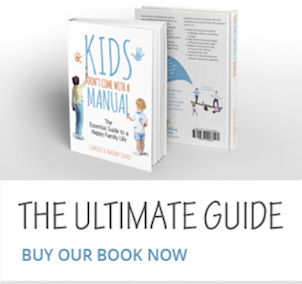Our kids need to understand why their scrapping in the car, whilst we are trying to drive safely, is not only distracting (and often very annoying!) but also sometimes dangerous. And although shouting at them to stop ‘or else’ may seem to work for a moment, the argy-bargy often resumes just minutes later. So how do we get our children to understand “The rules of the road”?
Here is a sample of some of our easy and effective tools for solving this issue
This works really well:
ENERGY DRAIN
- When we explain that a situation is ‘draining us of energy’ we are encouraging our children to realise that their actions affect others, which is likely, in turn, to affect how others will treat them.
- For example: “This arguing in the back is causing me an energy drain, I’ll need your help getting some energy back!”
- We can then explain to our children that in order to ‘repair’ the situation, they will need to help with household tasks or give us time to replenish our energy.
Here is another suggestion:
“I” STATEMENT
- An “I” statement gives our children a non-negotiable statement determining how they may or not behave.
- For example: “I drive children who can stay quietly in the back of the car without bickering”. If they continue, stop the car and remain silent.
- An “I” Statement needs to start with an “I” or “my” (and if speaking for the family or couple, with a “we” or “our”).
And you could also try this:
GIVE A CHOICE
- When kids are asked to choose between two options it not only distracts them from their bickering but it also puts them into thinking mode.
- For example: “Would you like to play ‘I spy’ or ‘spot the yellow car’?”
- When children are given choices they move from ‘opposition mode’ into ‘thinking mode’, and become interested in listening rather than arguing.
These are just a few examples of our Best of Parenting Tools. You can find more ideas and solutions to typical parenting challenges in our book ‘Kids Don’t Come With a Manual – The Essential Guide to a Happy Family Life‘.












































